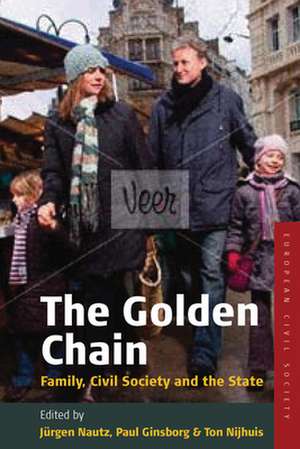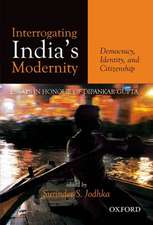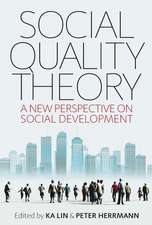The Golden Chain: European Civil Society
Editat de Paul Ginsborg, JA¼rgen Nautz, Ton Nijhuisen Limba Engleză Hardback – 14 mar 2013
Preț: 751.54 lei
Preț vechi: 976.02 lei
-23% Nou
Puncte Express: 1127
Preț estimativ în valută:
143.80€ • 150.55$ • 118.99£
143.80€ • 150.55$ • 118.99£
Carte tipărită la comandă
Livrare economică 07-21 aprilie
Preluare comenzi: 021 569.72.76
Specificații
ISBN-13: 9780857454706
ISBN-10: 0857454706
Pagini: 324
Dimensiuni: 152 x 229 x 19 mm
Greutate: 0.58 kg
Editura: BERGHAHN BOOKS INC
Seria European Civil Society
ISBN-10: 0857454706
Pagini: 324
Dimensiuni: 152 x 229 x 19 mm
Greutate: 0.58 kg
Editura: BERGHAHN BOOKS INC
Seria European Civil Society
Notă biografică
Jurgen Nautz is Professor of Economic History at the University of Vienna and Senior Lecturer of Business Administration at the Ostwestfalen-Lippe University of Applied Sciences. His publications include Conflict Potentials in Monetary Unions (co-ed., 2007); Zwischen Markt und Staat. Geschichte und Perspektiven der Ordnungspolitik in der Zweiten Republik, (co-authored, 2007); State and Civil Society (co-ed., 2008). Paul Ginsborg has been Professor of Contemporary European History at the University of Florence since 1992. His publications include Italy and its Discontents 1981-2001 (2001); Silvio Berlusconi: Television, Power and Patrimony (2004); The Politics of Everyday Life. Making Choices, Changing Lives (2005); Democracy: Crisis and Renewal (2008). Ton Nijhuis is the Scientific Director of the Duitsland Institut in Amsterdam and Professor in German Studies at the University of Amsterdam. In 2009 he received the Alexander von Humboldt Forschungspreis and has published many articles and book chapters.
Cuprins
List of Tables and Figures Acknowledgments Editor's Preface Dieter Gosewinkel and Jurgen Kocka Part I: Introduction and Overview Introduction Jurgen Nautz, Paul Ginsborg, and Ton Nijhuis Chapter 1. Uncharted Territories: Individuals, Families, Civil Society and the Democratic State Paul Ginsborg Part II: Feminist Historical Views Chapter 2. Gendered Boundaries. Civil Society, the Public/Private Divide and the Family Karen Hagemann Chapter 3. The Family, Civil Society, and Social Policy: a U.S. Perspective Sonya Michel Chapter 4. Feminist Mobilization and Family Change: a Case Study of a Grassroots Women's Organization in Quebec Anne Revillard Part III: Family and Society in South and Western Europe - Case Studies Chapter 5. Corporate Birthmarks of Civil Society: Kinship and Kinship Networks in Voluntary Associations, 1800 - 1848 Carola Lipp Chapter 6. State, Society and Family Change in 20th Century Spain: the Evolution of the 'Strong Family-Model' Elisa Chulia Chapter 7. The Foundation of Civilized Society: Family and Social Policy in Britain and Italy between 1946 and 1960 Stefania Bernini Chapter 8. Children and Civil Society John Keane Part IV: State and changing families in Eastern Europe and the Middle East Chapter 9. The Failures of Modernity: Family, Civil Society and State in the Passage from Ottoman Empire to Turkish Republic Ayse Saracgil Chapter 10. Israel and Palestine through Family, Civil Society and State. An Overview Marcella Simoni Chapter 11. Gendered Boundaries between the State, Family and Civil Society - the Case of Poland after 1989 Elzbieta Korolcuk Chapter 12. Family Structures and Civil Society Perspectives in Present-day Serbia Dragica Vujadinovic Notes on Contributors Index





























